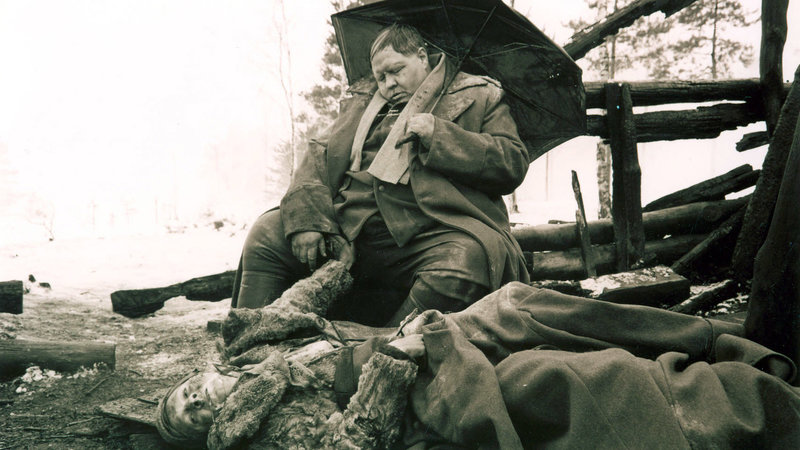
Screened as part of NZIFF 2004
The Last Train 2003
Poslednyi poezd
This brief, total immersion in annihilation has a visionary intensity that few filmmakers ever achieve – and that few audiences care to experiences. Its director is the 26-year-old son of the highly reputed but rarely exported Russian filmmaker Alexei German. An anti-war statement of chilling authenticity and daunting formal clarity, Alexei German Jr's The Last Train depicts the final journey of a corpulent German doctor drafted to a German field hospital on the Russian front during the winter of 1944. The arrival of the train and the chauffeured drive through bleak snowscapes draw us into an icy wilderness with a mysterious sense of purpose, but when we reach the hospital it's clear that the Germans are in retreat – and that the only purpose left is survival. Totally unsuited for life outside a heated city apartment, the doctor joins the struggling remnants of humanity, lost in the wake of war. He's saved by an idealistic, half-crazed soldier, a former postman, and together they trudge through snow and fogs in search of an invisible front line.
Shot in magnificent black and white and CinemaScope, the film features a dense soundscape that seems wrought from gasps and coughs. For all the single-minded artistry on display, there's a potent sense of creeping, physical desolation pervading every moment. The film is inspired by a true family story: the grandmother and mother of German Jr were saved in the Second World War by a German soldier who disobeyed orders to allow deported prisoners to escape from a train carriage. Elsewhere, at more or less the sae moment, his grandfather was killed by a Nazi bullet. The moment of grace in The Last Train seems a meagre one amidst such stunning futility, but I suspect that only a fervent humanist could be moved to create so profound a picture of human misery. When a young Russian chooses to walk the last ghastly mile in the shoes of a sad, fat German nonentity who died 50 years ago, there's empathy in the world. Care to join him. — BG